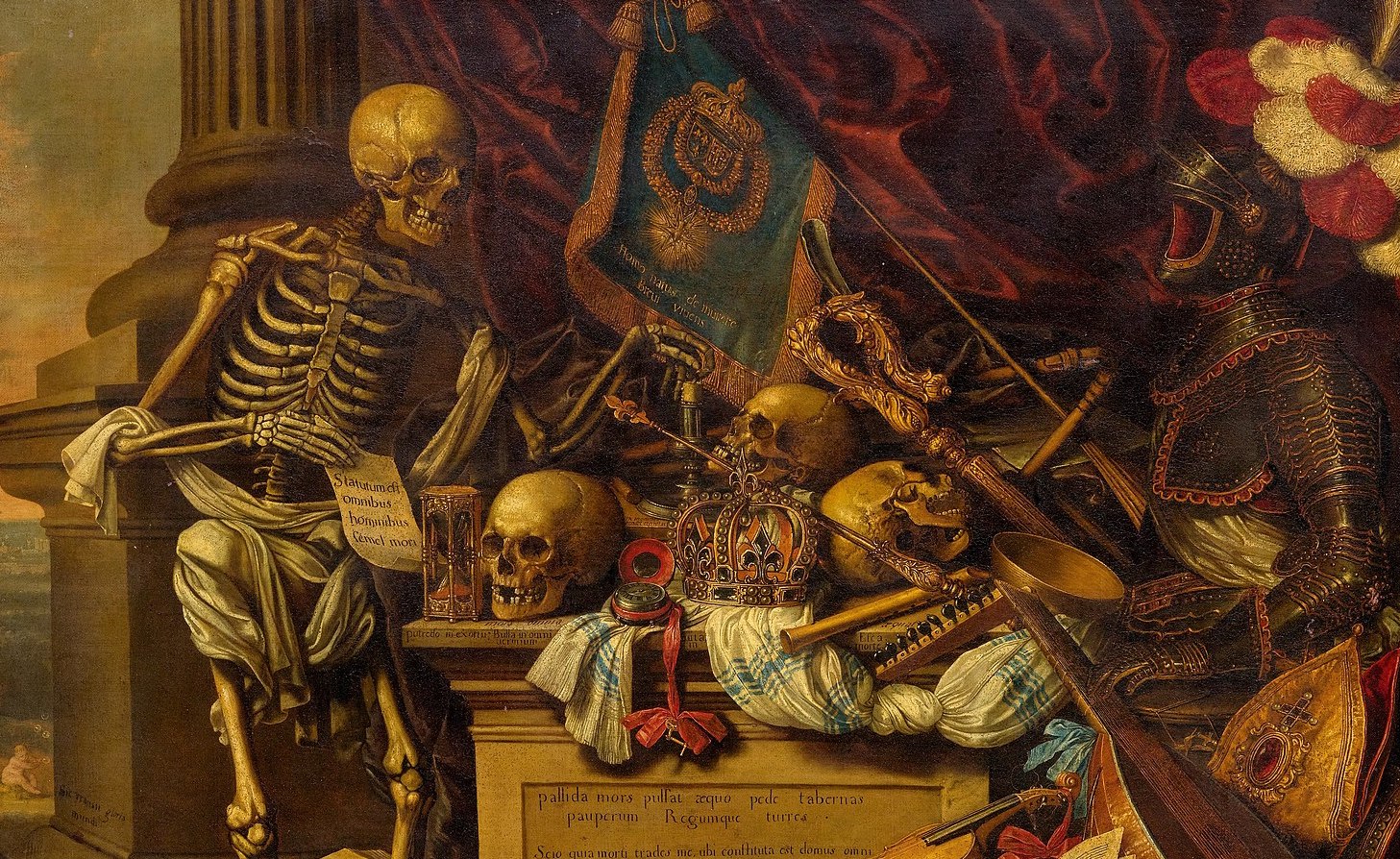How Much Time Do We Have?
Memento Mori. Remember we are mortal. It’s a constant theme in art because it’s a fact that’s as easy to forget as it is scary to think about. It’s unpleasant. And besides… given all our modern advancements in technology, isn’t it a little fatalistic? Isn’t there a chance we may live forever?

Capital Thinking · Issue #968 · View online
This could be your last day on this planet.
As wonderful as it would be if there was no such thing as death, we have to use death as a tool, we have to use it as a spur to move us forward, we have to use it as a reminder of what’s truly important and we have to be made better for the fact that we don’t know how much time we have.
We never do. And we never will
You Must Stare This Scary Fact in the Face
My real memento mori practice begins when I brush my teeth in the morning and when I brush them before bed in the evening.
There, propped under my bathroom mirror, I have a chunk of an old Victorian tombstone.
How it left that cemetery and came to be for sale, I don’t know and don’t want to know. But I know that it sobers me and sets me right each time I look at it. Because the piece had just one word on it.
It says, “Dad.”
Somebody who so identified with that word they wanted it on their tombstone; who lived and died and whose gravestone eventually even fell into disrepair.
Who were they? How did they pass? Are they missed? Were they famous?
It doesn’t matter. They are gone now.
Almost certainly, they were gone too soon. They left behind a family. They will never walk or speak or love or cry again. And so it will go for me. And so it will go for you. I said before that this theme in art continues.
One of the performance artist Marina Abramovic’s most interesting pieces features her lying on her back, completely nude, mimicking those ancient cadaver tombs.
Laid on top of her in the exact same position is a female skeleton, representing… “the last mirror we will all face.” It is a beautiful, haunting reminder of the “before and after” that every single living body ultimately experiences.
Marina’s piece has echoes of the Latin expression Hodie mihi, cras tibi. The skeleton is saying to the artist, “Today it’s me, tomorrow it’s you,”
We must remember, especially now, that life is ephemeral, that life is finite, that life is fragile. This should humble us… but also empower us. It should put everything in perspective.
When my son comes to the stairs and calls me to come play, I have no problem stopping because it could be the last time that he asks me.
When I think about my work and phoning it in today I think about how lucky I am to have today. So I try to live—not just during a pandemic—with the awareness that I may not be spared.
That a virus has no mercy. That it does not care about what I’ve built or who I am important to. It doesn’t care about any of us.
Death is indifferent, and it is ruthlessly, inevitably victorious.

